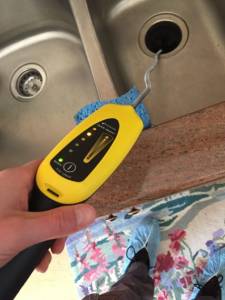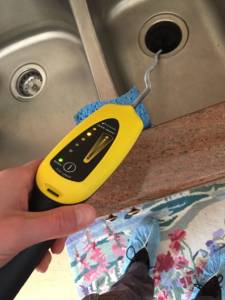The chemical drain cleaners which were conventionally used to unclog residential drains an eliminate drain odor are known to contain some of the harshest chemicals available to consumers, posing a potential threat to human and animal health (both through exposure to residual chemical vapors and through the risk of accidental ingestion). As such, many homeowners today are opting to use enzymatic drains cleaners instead, as these natural drain cleaners are far less hazardous whilst still being effective for a broad range of applications.

Enzymatic drain cleaners have a proven record of performance and were originally developed to clean septic tanks and wastewater systems. These cleaners, which are also sometimes referred to as “enzyme digesters”, remove drain odor due to the fact that the enzymes in them literally “digest” the organic waste material present in drains (e.g. trapped hair, food particles). Once this waste material is gone, there is nothing left in the drain for harmful bacteria to feed off of, which results in the elimination of odors, as drain odors are actually caused by these bacteria excreting gasses rather than being caused by the waste material itself.
That being said, enzymatic drain cleaners do have some disadvantages: They cannot tackle inorganic clogs (such as mineral deposits), they can be more difficult to find in stores, and they work more slowly than conventional chemical cleaners, often requiring hours to fully clean a drain. Likewise, one cannot confuse “natural” with “harmless”; some enzymatic drain cleaners may still pose a risk to health if not handled properly (though all of them are gentler on the environment than chemical cleaners).
Choosing an Enzymatic Drain Cleaner
When selecting an enzymatic cleaner, it’s essential to be aware of the fact that there are two main varieties of this kind of natural drain cleaner: Enzyme-based and bacterial. These labels are somewhat confusing, as all enzymatic cleaners contain both enzymes and at least a small amount of bacteria, but they differ in the following ways:
- Enzyme-based cleaners are the safest type of enzymatic drain cleaner available, and are composed of enzymes primarily, with a small amount of bacteria present as well. These cleaners are usually sufficient for standard organic clogs but may not be potent enough to take care of very stubborn odors.
- Bacterial cleaners are a type of enzymatic drain cleaner which is, in essence, more highly concentrated, with a greater percentage of active bacteria present. This allows these cleaners to both work faster and tackle even the toughest organic waste, but they are also more dangerous to handle. If you purchase a bacterial cleaner, be sure to put on a mask and gloves before using it, because if the cleaner contacts your skin or eyes, burns are likely to result.






